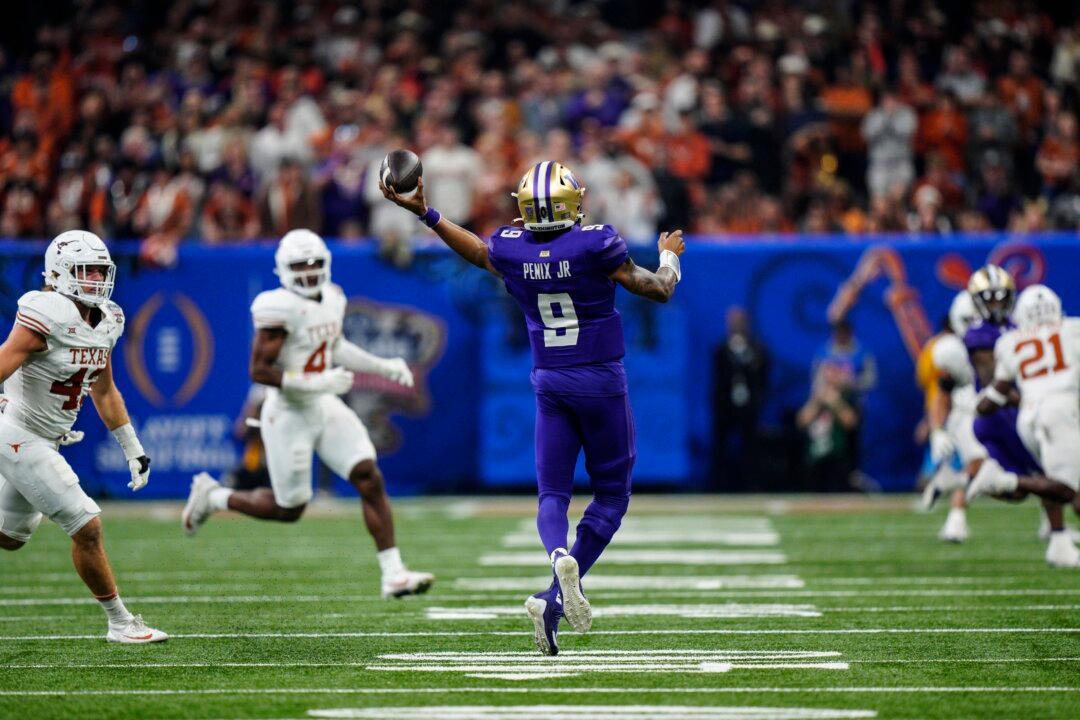The College Football Playoff national championship game between No. 1 Michigan and No. 2 Washington is a contrast in styles and a matchup of strength versus strength when Michael Penix Jr. faces the Wolverines’ defense.
“You get a schematic, professional-style matchup and to me you get the Baltimore Ravens versus the Kansas City Chiefs,” said Fox analyst Brock Huard, who has called games for both teams this season. “The Huskies in purple masquerade as the Chiefs and the guys in blue masquerade as the Baltimore Ravens.”





